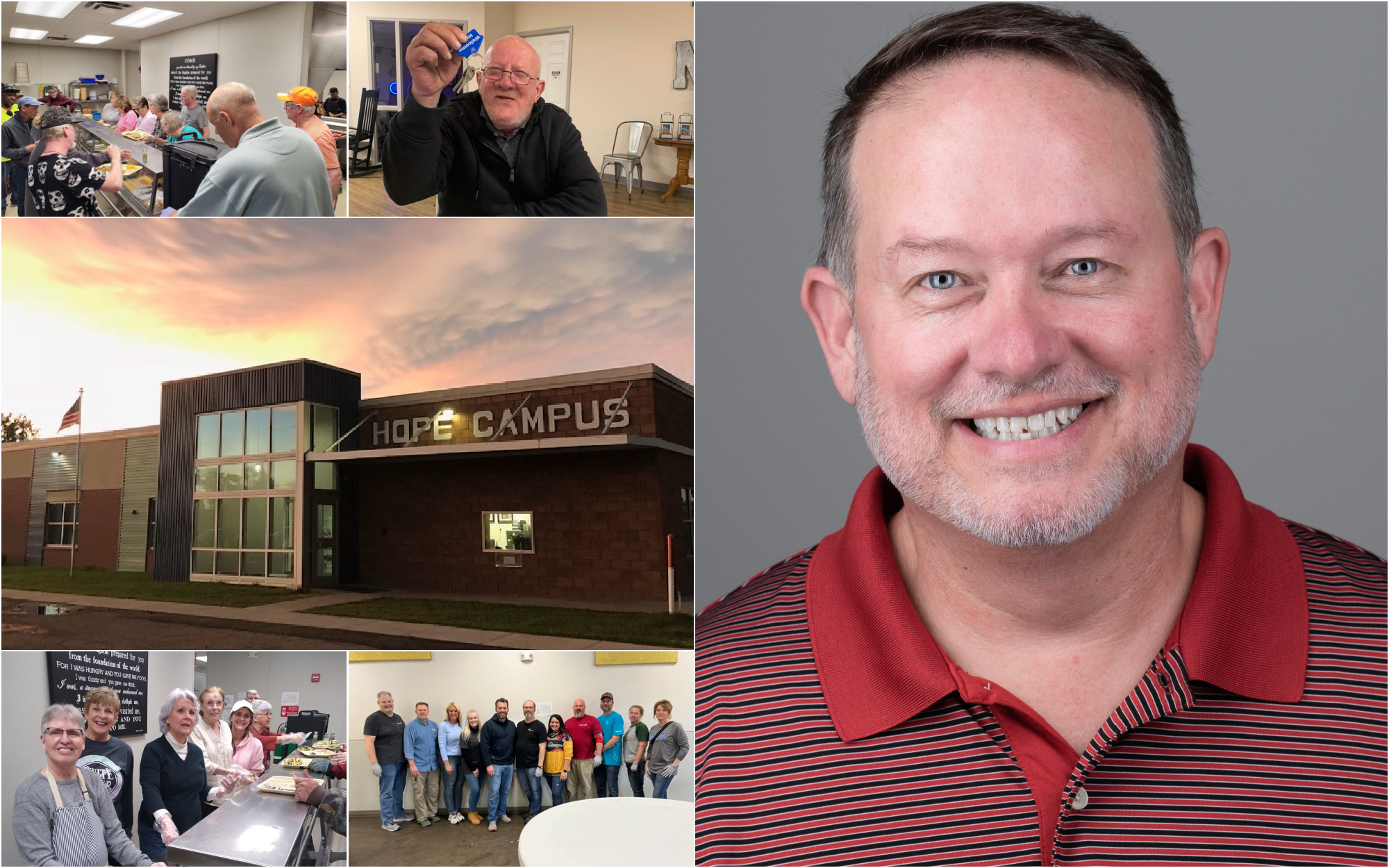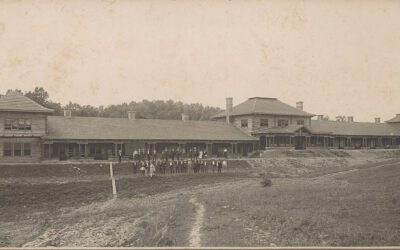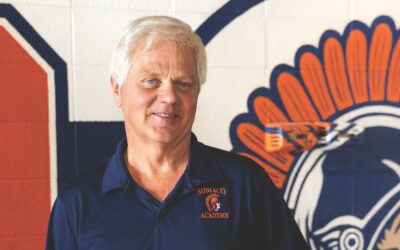There are many sayings about how to achieve success in life, how to attain self-sufficiency, how to claim your place in the world. But sometimes it’s not so simple. Sometimes there are circumstances that overshadow opportunity, that knock even the most resourceful person into a place they can’t find their way out of. For some, the cost of daily living can be overwhelming, especially when you have a family to support. Healthcare bills, food, clothing, rent… every little thing begins to add up and tips the scales, leaving millions of people facing homelessness, starvation, and even death. A country that was once known as “the land of plenty,” America is now a nation where want is far more prevalent than we might imagine; and hope seems far away and out of reach.
For organizations like HOPE Campus in Fort Smith, Arkansas, offering a way out and extending a hand to help someone up is the mission that drives them, giving less fortunate members of the community a chance at a fresh start. “Our mindset as staff is focused on helping our folks address those pieces of their lives that are broken and unhealthy,” explains Bryan Thompson, Volunteer Coordinator at HOPE Campus. “We walk with them throughout this process of self-discovery, encouraging them and acknowledging the successes and progress they experience. Empathy is one of the most important parts of our system, as we truly meet our clients where they are currently. This is so important in building relationships, and once they are created, the learning begins. It’s all relational. Building relationships and sincere empathy towards their plight is crucial. We are not just a homeless shelter – we are a transitional facility, and our staff knows that is our direction.”
Originally a coordinated effort between the Homelessness Task Force and the City of Fort Smith to address the growing problem of homelessness in the River Valley, HOPE Campus was created to guide impoverished community members in finding their way to becoming self-sufficient.
As research was compiled in 2010, the city passed a resolution supporting the development of a “campus model approach” rather than a traditional shelter, basing their decision on the high rate of success this model has shown in preventing and managing homelessness.
Over the next few years, the Homelessness Task Force gathered additional data as they ascertained both the best location for the campus as well as which services should be offered. The Homelessness Task Force was subsequently disbanded and replaced by the Old Fort Homeless Coalition, comprised of various organizations in Fort Smith dedicated to ending homelessness and poverty. To that end, the Old Fort Homeless Coalition began raising funds to initiate Riverview HOPE Campus – including purchasing and renovating the property at 301 S. E Street in Fort Smith.
Since opening its doors in 2016, HOPE Campus has operated as an independent 501(c)3 organization serving the impoverished residents of the River Valley, providing them with a wide range of services including shelter, meals, education, medical attention, and counseling.
“We understand the importance of equipping people with the tools they need to reshape their lives,” says Bryan. “HOPE Campus has services for case management, Medicaid application assistance, and Social Security Disability guidance – we successfully guided twenty-nine individuals to Social Security benefits in the last six months – as well as offering life skills classes, job search assistance, computer literacy classes, adult education classes, readiness classes, budgeting classes and even assistance with their first month’s rent and deposit through the ESG HUD grant. Our clients can stay with us and work on their progress for up to one year.”
To meet those needs, HOPE Campus operates a facility that includes a dormitory, dedicated men’s and women’s showers, a kitchen and cafeteria, barbershop and salon, laundry, library, community room, classroom, dog kennels, and a full-service clinic operated by Mercy Fort Smith. “Research and anecdotal evidence show that having so many services under one roof increases the likelihood that an individual will gain self-sufficiency,” says Bryan. “It’s help for them now, but also gives them hope for a better future.
The impact they are making in the Fort Smith/River Valley area is incredible—and the number of people who come through their doors in need speaks volumes. “Our facility serves three meals a day, seven days a week, and we never close,” says Bryan. “We serve anywhere from 9,000 to 11,000 meals a month, not counting any other services we provide. Our shelter dorm has a capacity to house 105, and our program dorm has a capacity of forty—and we stay full year-round. Which means that we help thousands each month, in one way or another.
“So how do you measure an organization’s success?” Bryan poses the question before offering an observation of what HOPE Campus has seen in terms of its effect on the community. “We can gather all the stats anyone wants to show them how great a success we’ve had in changing the lives of the people who come to us. However, the true measure is in the relationships that are built daily, and those relationships will see fruit – but that takes diligence, consistency, and time. Thirty days, sixty days, ninety days… how long does it take to make progress? We believe it takes the time it takes. We don’t cap that time. We do want to see some progress towards goals that have been set, of course; however, we want that progress to last. And so, to interrupt that just because of a metric mindset would be harmful to the client’s situation.”
HOPE Campus services are available to anyone in the community – not just residents. “We are a community-based organization so all are welcome,” Bryan notes. Operational funding is provided by the community through financial donations, while expansion funding is provided through a series of grants.
Over the years, HOPE Campus has grown from a staff of four to a staff of twelve. And there have been other points of growth as well. “Our experience with our population has increased, and we have more of an understanding of the difficulties, challenges, and barriers they experience,” Bryan says. “We have expanded our housing services to include a new forty bed program dorm, specifically for those individuals who have income and have reached a point that they are close to being self-sufficient enough to move out on their own.”
Naturally, there are challenges such as the availability of transportation for their residents, affordable transitional housing, and supportive services for individuals with mental and physical disabilities. Even so, HOPE Campus is making a noticeable change in the community—with their eye always on the future and the possibilities of more. “Our goal for the future is to add additional single unit apartments as well as provide transitional housing for those most vulnerable among our population.”
As they work with those in need, HOPE Campus offers more than just some abstract concept of the word “hope.” Instead, they show what hope looks like, what it feels like—and what it does.
Hope Campus is located at 301 South E. Street in Fort Smith, Arkansas. For more information, visit hopecampus.org.




